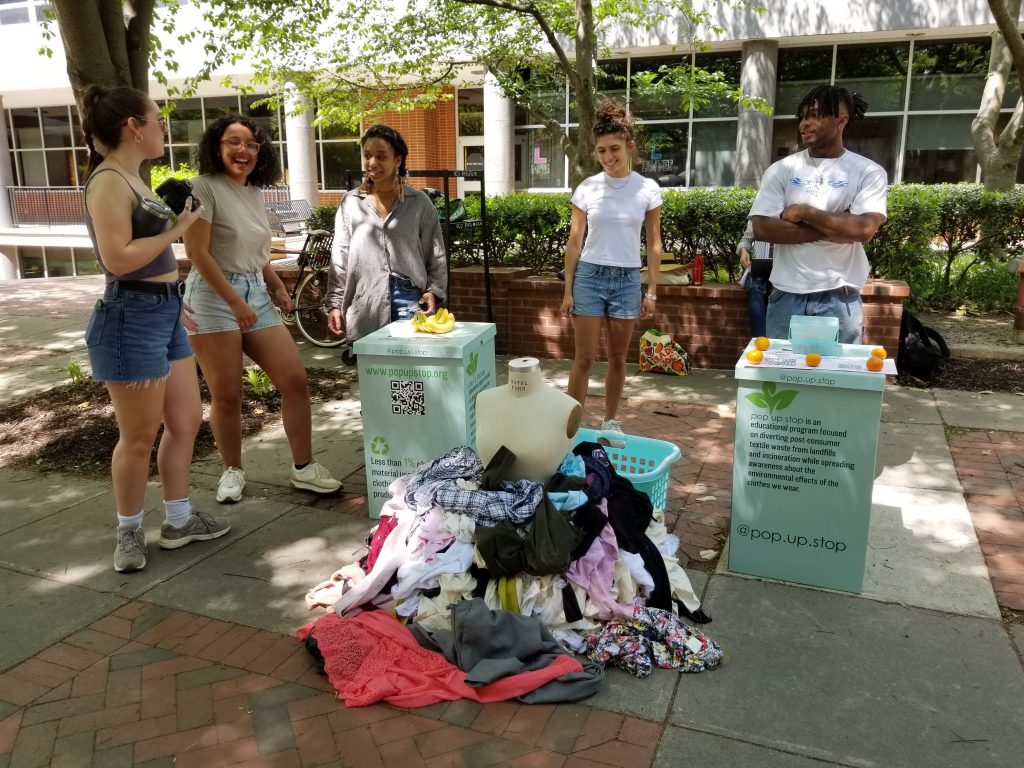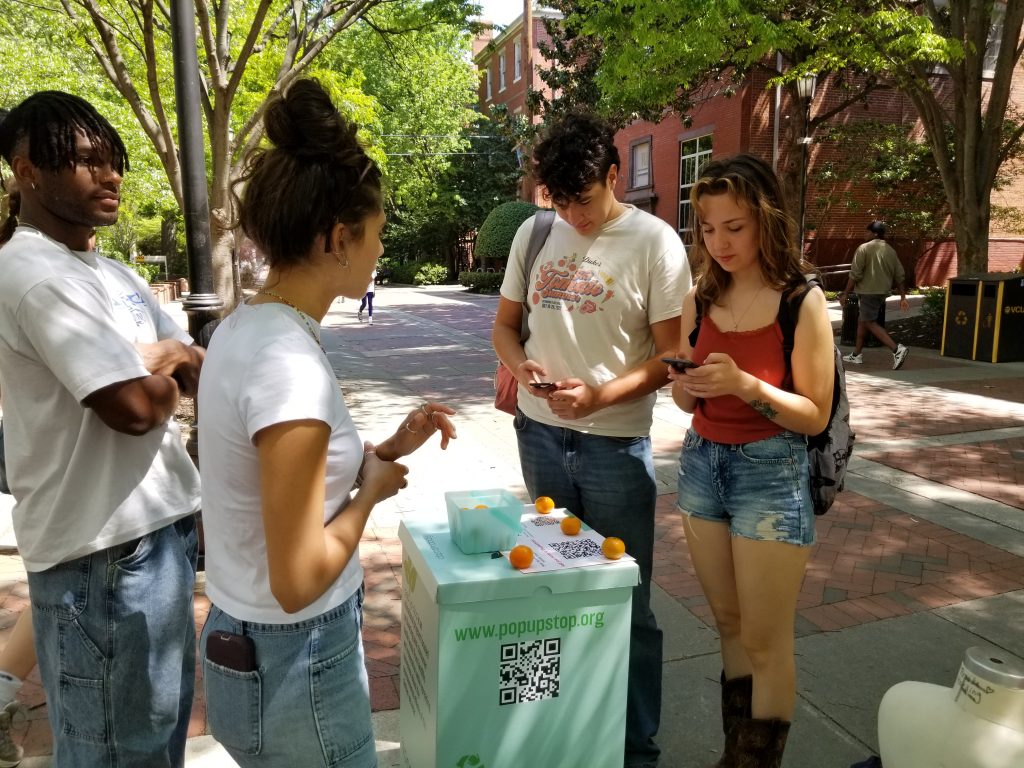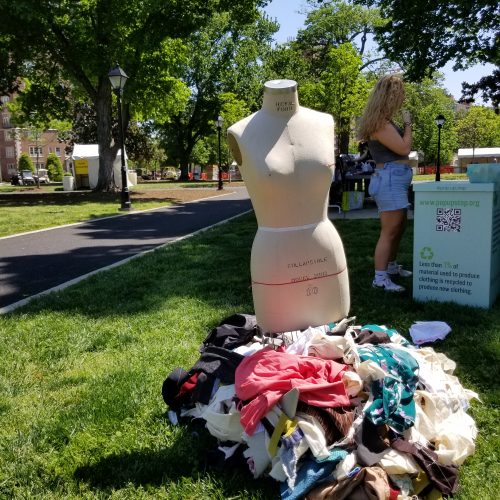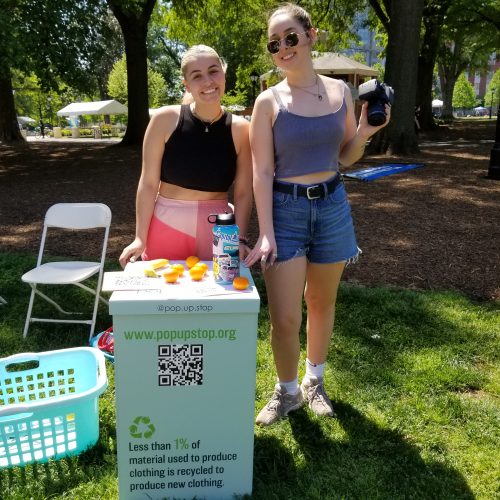Pop Up Stop Draws Attention to Textile Waste
May 9, 2023 |

Student volunteers with Pop Up Stop hosted dual awareness events in April on the campus of Virginia Commonwealth University.
Hairbands, sheer fabrics and chunky sandals are on trend for summer 2023.
Yes, 90s styles continue to make their comeback.
But before you hit play on your celebratory mix CD, consider this: many actual garments from the 90s are still with us. If they’re not in our closets, they’re likely sitting in landfills because they were made with synthetic, plastic-based fibers.
It’s estimated that fabrics such as polyester, nylon and spandex could take up to 200 years to decompose.
This is the problem of textile waste, and it surely predates the 90s.
In 2018, Americans trashed 11.3 million tons of textiles — that’s a lot of clothing, blankets, sheets and towels. This waste makes up nearly 8% of all material landfilled in the U.S. Only about 1% of textiles are recycled.
Meanwhile, clothing manufacturers are churning out more than ever — and people are buying it. According to the Ellen MacArthur Foundation, we buy twice as many clothes as we did 20 years ago and keep them half as long. This business model is referred to as “fast fashion.”

Pop Up Stop volunteers speak with fellow students about textile waste during an event April 21 at the Compass at VCU.
Volunteers behind Pop Up Stop want to draw attention to the issue. Through in-person events (a.k.a. “pop up stops”) and social media, they’re working to inform people about the impact of textile waste.
Their first event was in April 2022 on the campus of Virginia Commonwealth University.
“I hope that with more and more Pop Up Stop events, more people will start to learn about the environmental and social impacts of the textile waste created from garments that are thrown away,” said Kimberly Guthrie, associate professor of Fashion Design + Merchandising at VCU.
The project originated with Guthrie, whose research interests include sustainable fashion and eco-friendly design.
Pop Up Stop’s goal is not to collect unusable textiles but to inspire people to change consumption habits. The outreach events enable volunteers to share information face-to-face, which can be one of the most effective forms of communication.
“Pop Up Stop helps inform people about what their clothes are made of and the environmental impacts of different fibers,” said Nina Sanchez, a Pop Up Stop volunteer and VCU fashion design major. “We’re also showing people how to give their clothing more life. As a volunteer, I talk with visitors to the Pop Up Stop about how to make sure they are putting their old clothes to good use without hurting our environment.”
Volunteers have even developed a toolkit for anyone to host their own event. They hope other universities, schools, clubs and faith organizations will take part.
“The level of student support for this program is so inspiring,” Guthrie said. “While we do have to wait for post-consumer textile recycling to reach scale, we don’t have to wait to work on changing our mindsets and consumption behaviors.”
Buying secondhand is one way to cut down on textile waste.
Perhaps the perfect pair of chunky sandals is waiting for you at a local thrift store?
For more information about Pop Up Stop, go to www.popupstop.org.
Tags: kim guthrie, pop up stop, textile, textile waste, vcu, vcu fashionCategory: News


